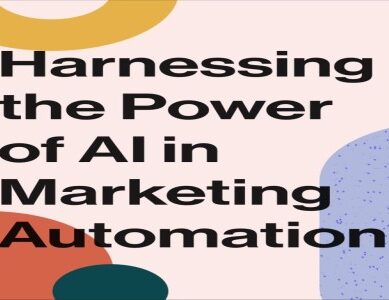In today’s dynamic digital landscape, the integration of Artificial Intelligence (AI) into marketing automation has become increasingly crucial for businesses striving to stay ahead of the competition. AI not only streamlines processes but also enhances customer engagement and drives revenue growth. However, maximizing the benefits of AI in marketing automation requires careful consideration and strategic implementation.
In this blog, we’ll explore the transformative potential of AI in marketing automation and outline key factors to ensure success.
1.Personalization at Scale
One of the most significant advantages of AI in marketing automation is its ability to deliver personalized experiences at scale. By analyzing vast amounts of data, AI-powered algorithms can segment audiences based on behavior, preferences, and demographics, allowing marketers to tailor content and messages to individual customers. However, it’s essential to strike the right balance between personalization and privacy, ensuring that customer data is handled responsibly and ethically.
2. Predictive Analytics
AI empowers marketers with predictive analytics capabilities, enabling them to anticipate customer needs and behaviors with greater accuracy. However, it’s crucial to continuously refine models and algorithms to adapt to changing market dynamics and consumer preferences.
3. Automation and Efficiency
AI-driven automation streamlines repetitive tasks, freeing up valuable time for marketers to focus on strategy and creativity. However, it’s important to maintain a human touch and ensure that automated interactions resonate with the target audience authentically.
4. Data Quality and Governance
The effectiveness of AI in marketing automation hinges on the quality and reliability of data inputs. Marketers must prioritize data hygiene practices, ensuring that data is accurate, up-to-date, and compliant with regulatory standards such as GDPR and CCPA. Additionally, implementing robust data governance frameworks ensures transparency, accountability, and trustworthiness in AI-driven decision-making processes.
5. Continuous Learning and Optimization
Marketers should embrace a culture of experimentation and iteration, testing different approaches and measuring performance metrics to refine AI models and strategies continually. By leveraging A/B testing, multivariate testing, and attribution modeling, businesses can extract valuable insights and drive continuous improvement in marketing outcomes.
6. Ethical Considerations
As AI becomes increasingly integrated into marketing automation, ethical considerations must be carefully addressed. Marketers must prioritize transparency, fairness, and accountability in AI-driven decision-making processes, guarding against biases and discriminatory outcomes.


